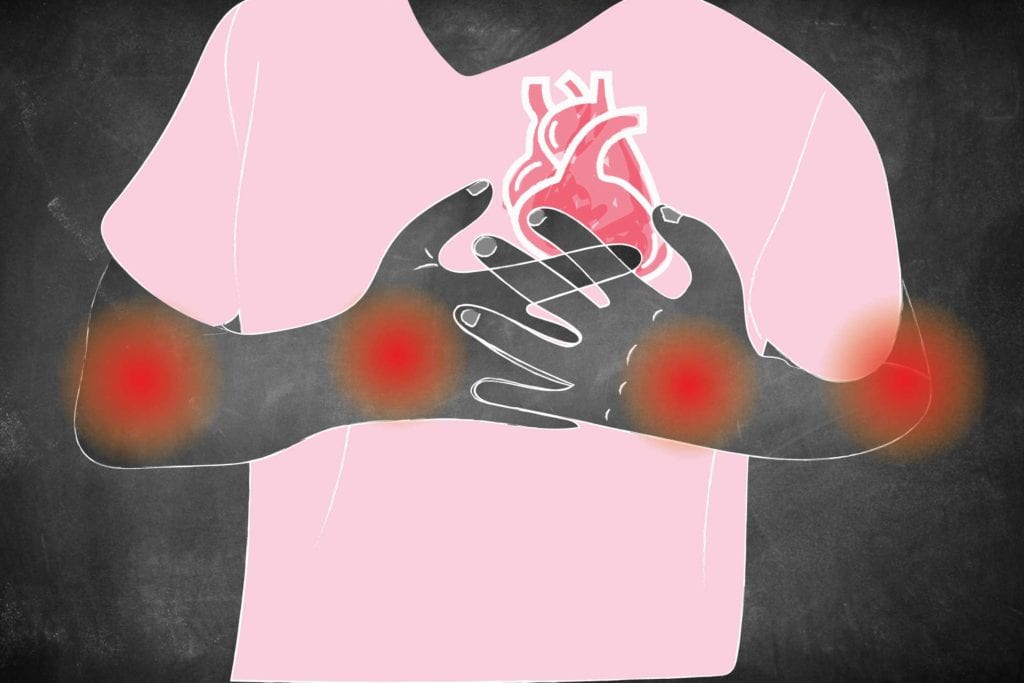

Experts have long known that people who have certain types of inflammatory arthritis, such as rheumatoid arthritis, are more apt to develop cardiovascular disease, though until recently it wasn’t clear whether psoriatic arthritis (PsA) patients were at risk. That’s changed in the past few years, as studies specifically looking at incidence rates of heart attacks, strokes, and other cardiovascular events in people with PsA have been published.
In 2016, for instance, a meta-analysis in the journal Arthritis Care & Research determined that people with PsA were 43 percent more likely than average to develop cardiovascular disease. Now a new study, published in the journal Clinical Rheumatology, has reached a similar conclusion.
To conduct the new study, researchers analyzed information from a large clinical database of Israeli patients that had been collected between 2000 and 2013. More than 3,000 patients in the database had psoriatic arthritis. The researchers then checked to see which of the PsA patients had also been diagnosed with cardiovascular disease or an important heart disease risk factor such as high cholesterol, high blood pressure, or type 2 diabetes.
The study authors concluded that “a high prevalence of [cardiovascular disease]-related risk factors and morbidity was found in this Middle Eastern PsA population, in accordance with data from other geographic regions.”
While this study does not directly prove that PsA causes cardiovascular disease, it adds to the evidence that psoriatic arthritis is strongly associated with heart and blood vessel problems and should be taken seriously.
Experts also have a plausible explanation for why this link exists: PsA and other forms of inflammatory arthritis don’t just cause inflammation in your joints; the inflammation can impact your entire body, including within your cardiovascular system.
If you have PsA be sure to talk to your health care provider about heart disease screening so you can take steps to lower your risk by making lifestyle changes and, if necessary, taking medication.





